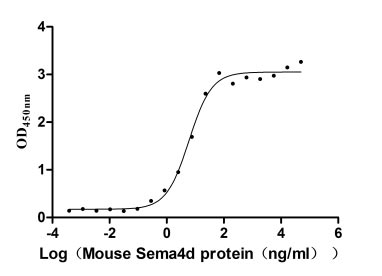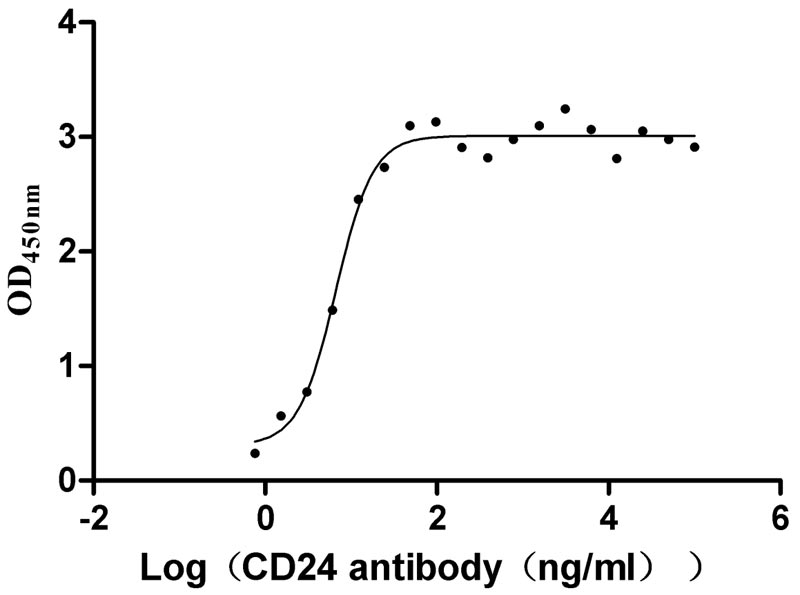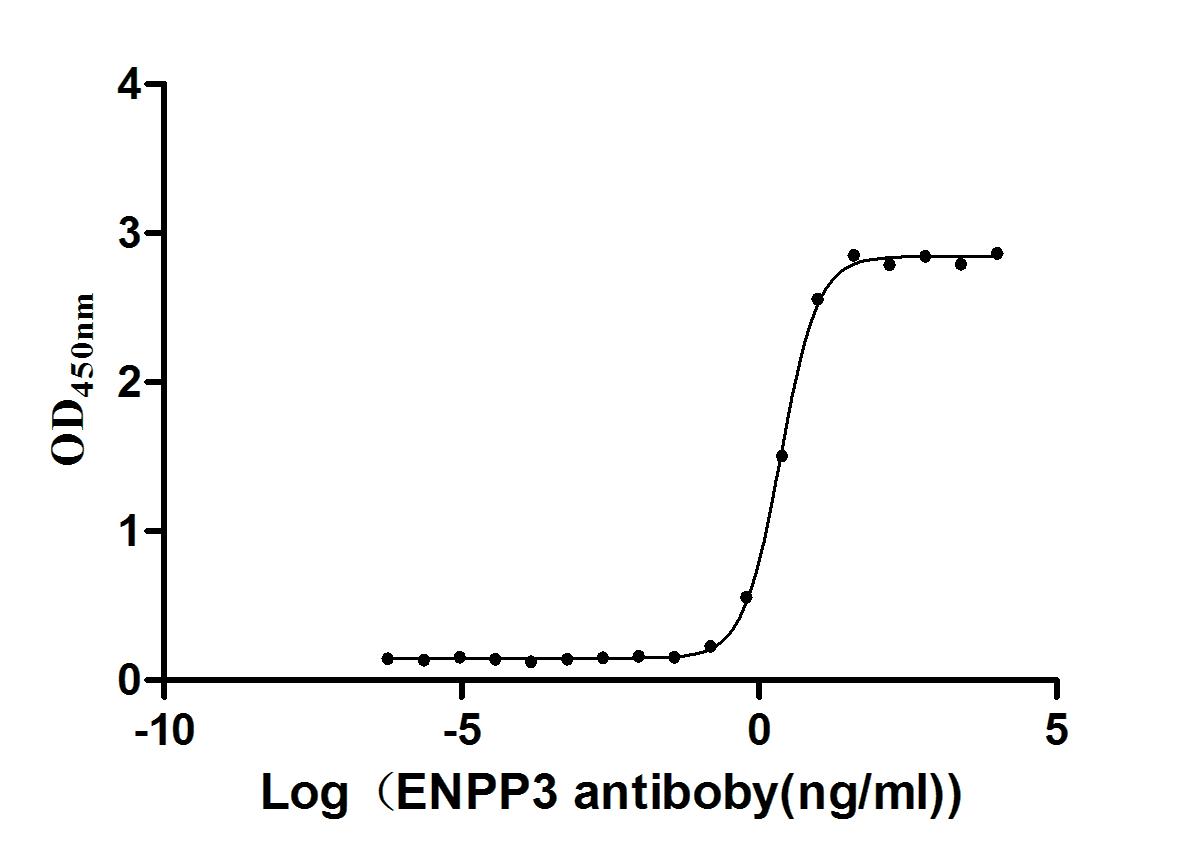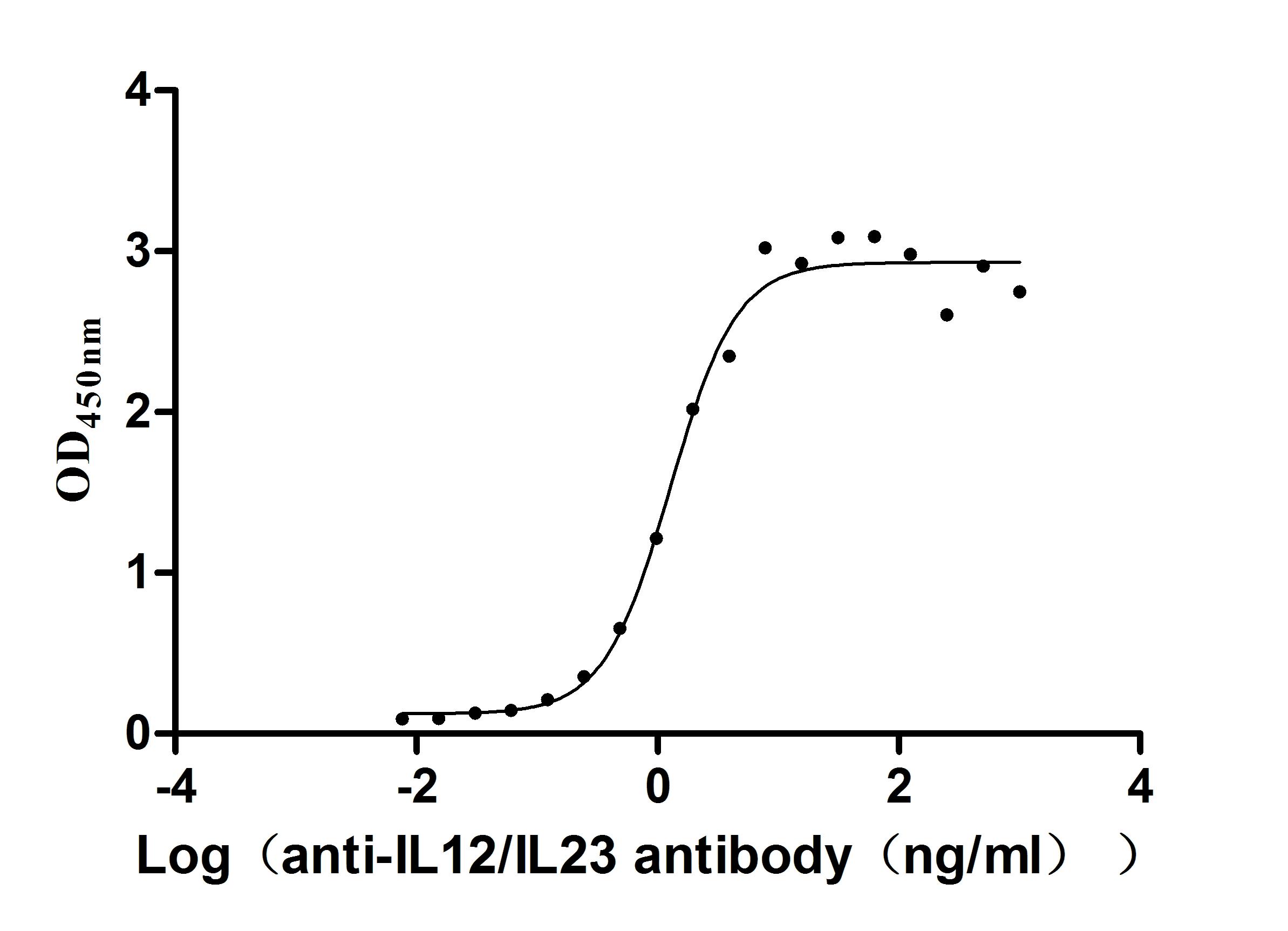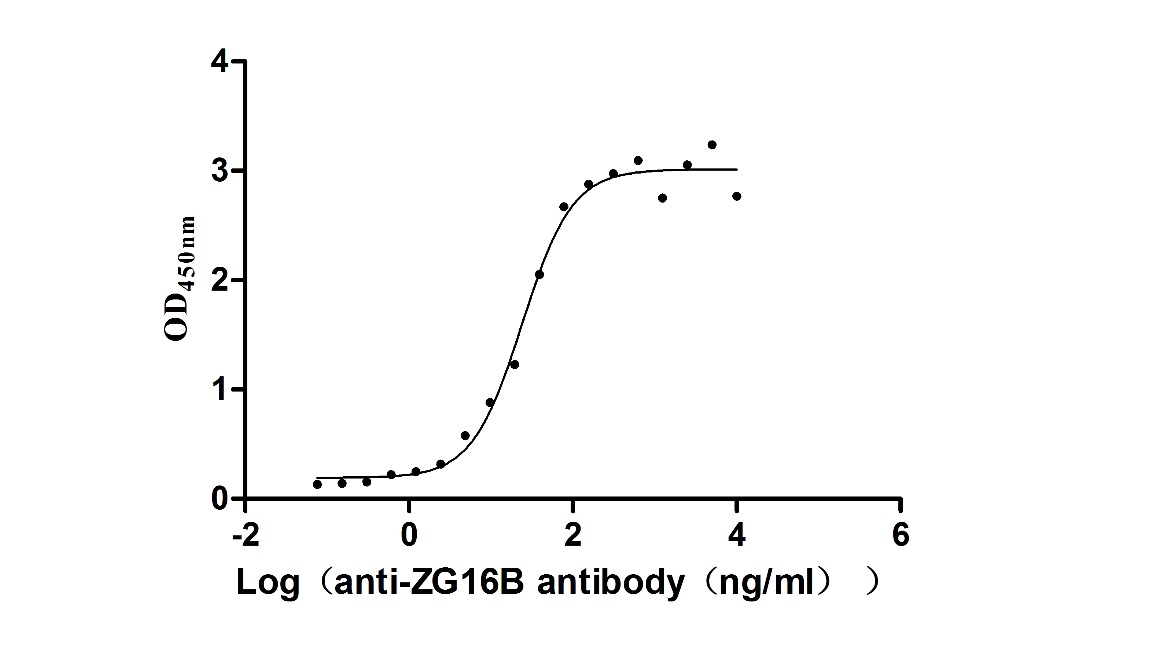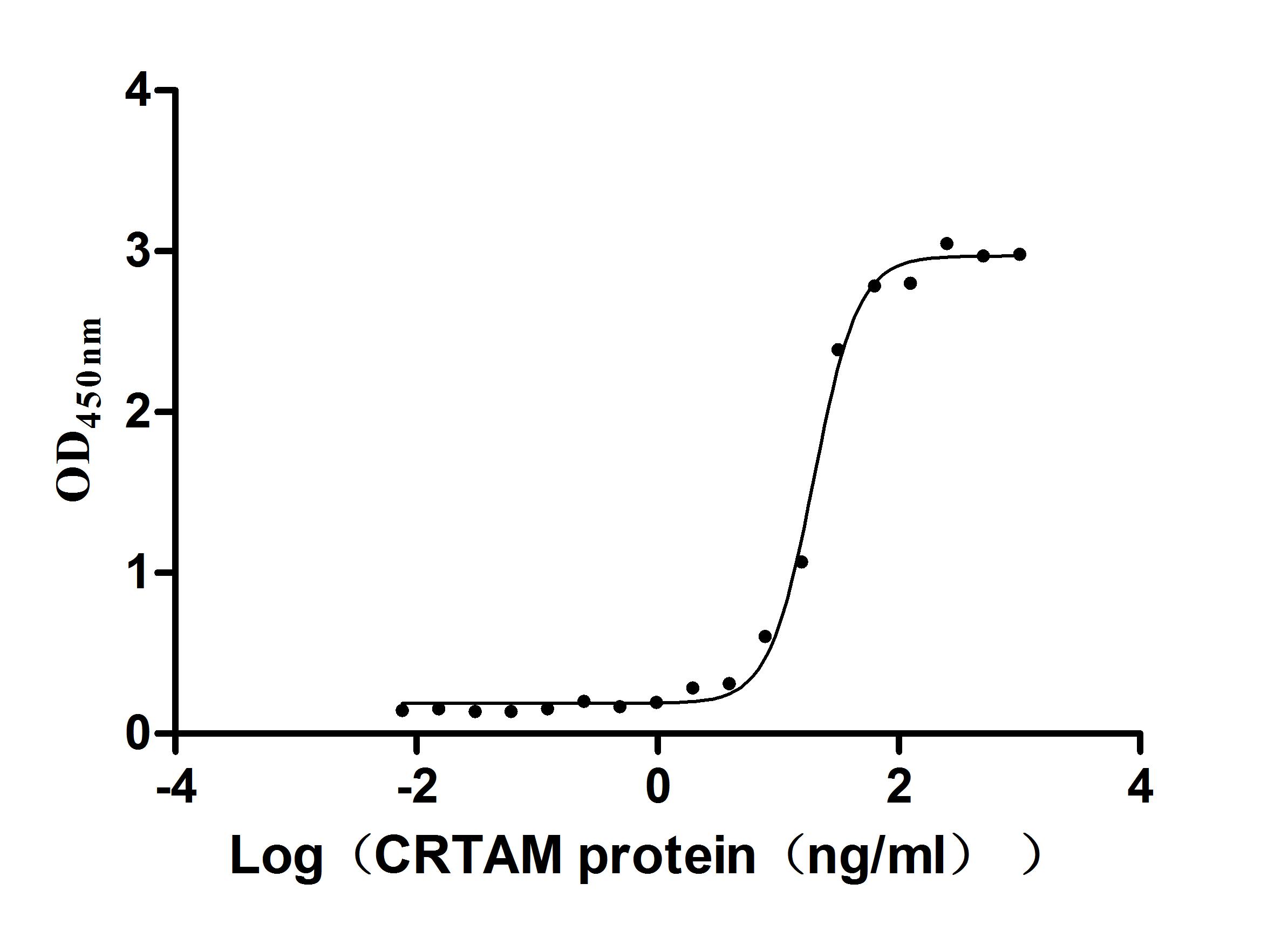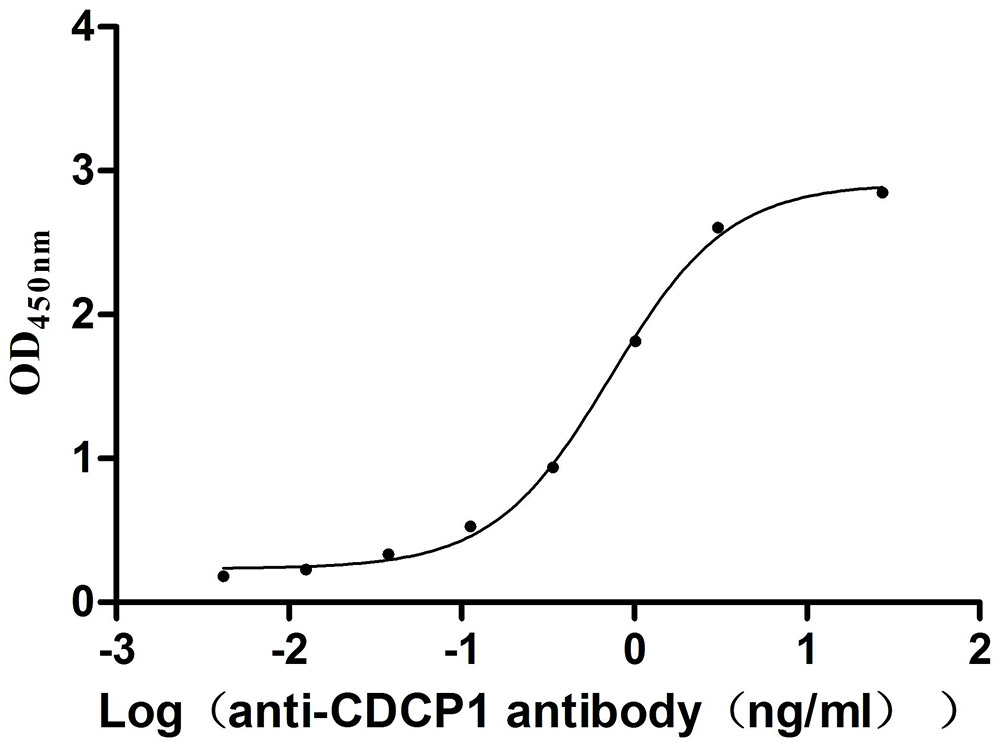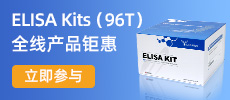Recombinant Mouse Forkhead box protein Q1 (Foxq1)
-
中文名稱:小鼠Foxq1重組蛋白
-
貨號:CSB-YP008845MO
-
規(guī)格:
-
來源:Yeast
-
其他:
-
中文名稱:小鼠Foxq1重組蛋白
-
貨號:CSB-EP008845MO
-
規(guī)格:
-
來源:E.coli
-
其他:
-
中文名稱:小鼠Foxq1重組蛋白
-
貨號:CSB-EP008845MO-B
-
規(guī)格:
-
來源:E.coli
-
共軛:Avi-tag Biotinylated
E. coli biotin ligase (BirA) is highly specific in covalently attaching biotin to the 15 amino acid AviTag peptide. This recombinant protein was biotinylated in vivo by AviTag-BirA technology, which method is BriA catalyzes amide linkage between the biotin and the specific lysine of the AviTag.
-
其他:
-
中文名稱:小鼠Foxq1重組蛋白
-
貨號:CSB-BP008845MO
-
規(guī)格:
-
來源:Baculovirus
-
其他:
-
中文名稱:小鼠Foxq1重組蛋白
-
貨號:CSB-MP008845MO
-
規(guī)格:
-
來源:Mammalian cell
-
其他:
產(chǎn)品詳情
-
純度:>85% (SDS-PAGE)
-
基因名:Foxq1
-
Uniprot No.:
-
別名:Foxq1; Hfh1; Hfh1lForkhead box protein Q1; HFH-1l; HNF-3/forkhead-like protein 1; HFH-1; Hepatocyte nuclear factor 3 forkhead homolog 1
-
種屬:Mus musculus (Mouse)
-
蛋白長度:Full length protein
-
表達區(qū)域:1-400
-
氨基酸序列MKLEVFVPRA AHGDKMGSDL EGAGSSDVPS PLSAAGDDSL GSDGDCAANS PAAGSGAGDL EGGGGERNSS GGPSAQDGPE ATDDSRTQAS AAGPCAGGVG GGEGARSKPY TRRPKPPYSY IALIAMAIRD SAGGRLTLAE INEYLMGKFP FFRGSYTGWR NSVRHNLSLN DCFVKVLRDP SRPWGKDNYW MLNPNSEYTF ADGVFRRRRK RLSHRTTVSA SGLRPEEAPP GPAGTPQPAP AARSSPIARS PARQEERSSP ASKFSSSFAI DSILSKPFRS RRDGDSALGV QLPWGAAPCP PLRAYPALLP AAPGGALLPL CAYGASEPTL LASRGTEVQP AAPLLLAPLS TAAPAKPFRG PETAGAAHLY CPLRLPTALQ AAAACGPGPH LSYPVETLLA
-
蛋白標(biāo)簽:Tag?type?will?be?determined?during?the?manufacturing?process.
The tag type will be determined during production process. If you have specified tag type, please tell us and we will develop the specified tag preferentially. -
產(chǎn)品提供形式:Lyophilized powder
Note: We will preferentially ship the format that we have in stock, however, if you have any special requirement for the format, please remark your requirement when placing the order, we will prepare according to your demand. -
復(fù)溶:We recommend that this vial be briefly centrifuged prior to opening to bring the contents to the bottom. Please reconstitute protein in deionized sterile water to a concentration of 0.1-1.0 mg/mL.We recommend to add 5-50% of glycerol (final concentration) and aliquot for long-term storage at -20℃/-80℃. Our default final concentration of glycerol is 50%. Customers could use it as reference.
-
儲存條件:Store at -20°C/-80°C upon receipt, aliquoting is necessary for mutiple use. Avoid repeated freeze-thaw cycles.
-
保質(zhì)期:The shelf life is related to many factors, storage state, buffer ingredients, storage temperature and the stability of the protein itself.
Generally, the shelf life of liquid form is 6 months at -20°C/-80°C. The shelf life of lyophilized form is 12 months at -20°C/-80°C. -
貨期:Delivery time may differ from different purchasing way or location, please kindly consult your local distributors for specific delivery time.Note: All of our proteins are default shipped with normal blue ice packs, if you request to ship with dry ice, please communicate with us in advance and extra fees will be charged.
-
注意事項:Repeated freezing and thawing is not recommended. Store working aliquots at 4°C for up to one week.
-
Datasheet :Please contact us to get it.
靶點詳情
-
功能:Plays a role in hair follicle differentiation.
-
基因功能參考文獻:
- FOXQ1 is a novel factor involved in regulating hepatic gluconeogenesis, and the decreased FOXQ1 expression in liver may contribute to the development of type 2 diabetes. PMID: 27421728
- R164C mutation in FOXQ1 H3 domain affects formation of the hair medulla in mice. PMID: 23489430
- This study has elucidated the functional impact of FoxQ1 on epithelial differentiation. PMID: 20717954
- satin hair mutant gene Foxq1 is among multiple and functionally diverse regulatory targets for Hoxc13 during hair follicle differentiation PMID: 16835220
- Ultrastructural analysis suggests that the gastric acid secretion defect in Foxq1-deficient mice might be due to impairment in the fusion of cytoplasmic tubulovesicles to the apical membrane of secretory canaliculi. PMID: 18544931
- Transcription factor foxq1 controls MUC5AC gene expression and granule content in mouse stomach surface mucous cells. PMID: 18558092
顯示更多
收起更多
-
相關(guān)疾?。?/div>Defects in Foxq1 are the cause of the satin (sa) phenotype and results in a silky coat with high sheen arising from structurally abnormal medulla cells and defects in differentiation of the hair shaft.亞細(xì)胞定位:Nucleus.組織特異性:Expressed in kidney and stomach. Expression in the outer medulla of the kidney and the transitional epithelium. Expressed in the hair follicle medulla.數(shù)據(jù)庫鏈接:
Most popular with customers
-
Recombinant Mouse Semaphorin-4D (Sema4d), partial (Active)
Express system: Mammalian cell
Species: Mus musculus (Mouse)
-
Recombinant Human Signal transducer CD24 (CD24)-Nanoparticle (Active)
Express system: Mammalian cell
Species: Homo sapiens (Human)
-
Recombinant Human Intestinal-type alkaline phosphatase (ALPI) (Active)
Express system: Mammalian cell
Species: Homo sapiens (Human)
-
Express system: Mammalian cell
Species: Homo sapiens (Human)
-
Recombinant Human IL12B&IL12A Heterodimer Protein (Active)
Express system: Mammalian cell
Species: Homo sapiens (Human)
-
Recombinant Macaca fascicularis zymogen granule protein 16 homolog B (ZG16B) (Active)
Express system: Mammalian cell
Species: Macaca fascicularis (Crab-eating macaque) (Cynomolgus monkey)
-
Recombinant Human Cell adhesion molecule 1 (CADM1), partial (Active)
Express system: Mammalian cell
Species: Homo sapiens (Human)
-
Recombinant Mouse CUB domain-containing protein 1 (Cdcp1), partial (Active)
Express system: Mammalian cell
Species: Mus musculus (Mouse)


